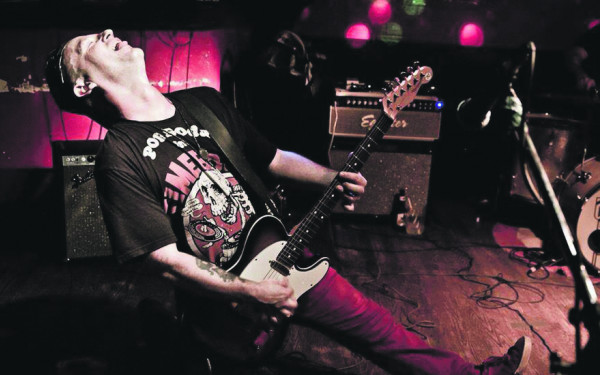If You Don’t Have Anything Nice to Say, Say It Anyway
Literary Critics Come Together to Discuss Review Culture
Literary critics who have crafted their reviews constructively and passionately have arguably made critique an art form in itself. The panel discussion What We Talk About When We Talk About Poetry this week at the Word bookstore aims to debate just that.
As Zach Wells explains, knowing that their work will eventually be scrutinized motivates writers to think critically themselves before sending it out to the shark-infested waters of the world of publishing.
“It’s good for a writer to have an awareness of there being a critical audience out there,” said Wells, one of the critics who will be participating in the panel.
“Once it comes time to put your book together and publish your work, it’s good to think of the sort of people who might be reading it with a skeptical eye.”
That being said, the critics themselves have to be sure they craft their reviews as carefully as any other type of work.
“They need to figure out how to be engaging, precise, economical and entertaining, which takes time,” said panellist Jason Guriel.
The reviews are still their writing, after all, and a successful critic is one who lets their best writer’s voice come through.
“The most valuable thing about a thought-out critique is its style,” Guriel said.
But perhaps the most difficult part about the profession is the sometimes-unpleasant responses it provokes.
“A lot of writers can be pretty thin-skinned and I’ve encountered a bit of this over the years,” Wells said.
The 140-Character Critic
Negative responses to critiques are not a new phenomenon, but today’s technology has allowed them to become much more visible.
“[Negativity has] probably been magnified to a certain extent because of social media,” Wells said. “A lot more of peoples’ responses are made known publicly than used to be the case.
“It’s very easy at the click of a button to make your feelings about a subject known,” he added.
Hiding behind a screen has allowed people to take their discontent past appropriate or professional levels.
“One of the things that has started happening recently which I think is a particularly interesting phenomenon […] is this equation between a negative review and rape culture,” said Carmine Starnino, who will be moderating Wednesday’s panel.
“There have been a number of instances of negative reviews being compared to rape […]. I don’t even know how people could say that but people are saying it. It’s just an example of this anger of criticism being displaced.”
While social media can certainly be a welcome tool for writers, Wells says there’s nonetheless a right and wrong way to use it.
“What gets focused on with social media is the negative—a lot of the trolling and flame wars and stuff—but there’s also a quiet sense of a conversation happening that is very positive,” he said. “Social media can be a great way of sharing things that are happening, like links to essays that people have put up on blogs and that kind of thing.”
The panel will discuss the importance of poets and other writers understanding the value of a thought-out review and keeping it apart from their own personal feelings.
“I think you separate [the personal from the professional] the way every other professional separates it. If you make movies, if you make records, if you open a restaurant, you accept it as part of the profession,” said Starnino.
“You certainly don’t suggest that the [reviewer] is morally damaged, but this is what happens and this is unique to the poetry community.”
Let’s Talk About It
With all the recent battles regarding critics and their reviews, the point of the panel is to discuss the issues in a professional way.
“One of the things that’s easy to forget when you’re sitting alone with a book in a room is that there are people involved,” Wells said. “So it’s good to get out and meet, whether it’s audience members or the writers of other books, face to face and talk about ideas.”
With so much to talk about, it’s hard to know what direction the panel discussion will take.
“These are not people who think in predictable ways and I’m hoping that the conversation will go in interesting directions,” Starnino said.
“It also depends on who shows up because we’re going to open it up into questions. I think a fair amount of people may come in with silly ideas or quotes, things they want to embarrass us about. It makes things more exciting.”
The critics are open to discussing their opinions with an audience, but regardless of the reaction they will continue to review.
“You do it because you want to make sense of something for yourself and hopefully what you’re doing is worthwhile for others,” Starnino said.
Even if knee-jerk reactions continue to pop up on Twitter and Facebook, Wells says real readers appreciate their willingness to carry on.
“For people who want to read serious book reviews and who want to write them, there’s always going to be a way to get them out there and there’s always going to be an audience to read them,” said Wells.
“It’s a limited audience, but it’s there and it’s serious and they’re more interested in real arguments and real judgments than little blasts on Twitter.”
What We Talk About When We Talk About Poetry // March 19 // The Word Bookstore (469 Milton St.) // 7:30 p.m. // Free admission





_600_375_90_s_c1.jpg)
